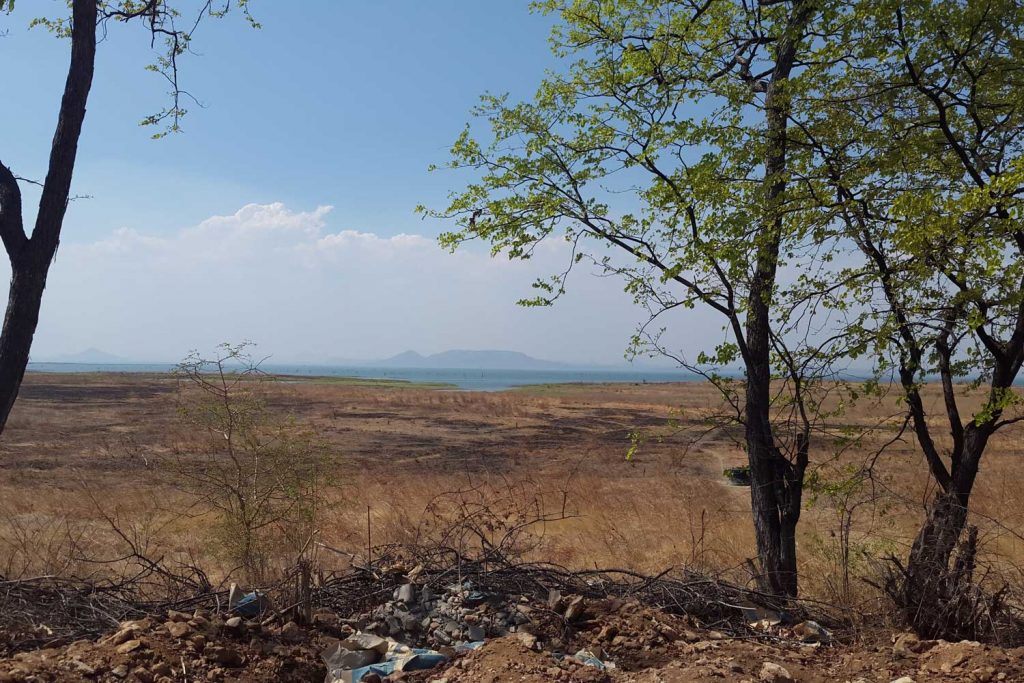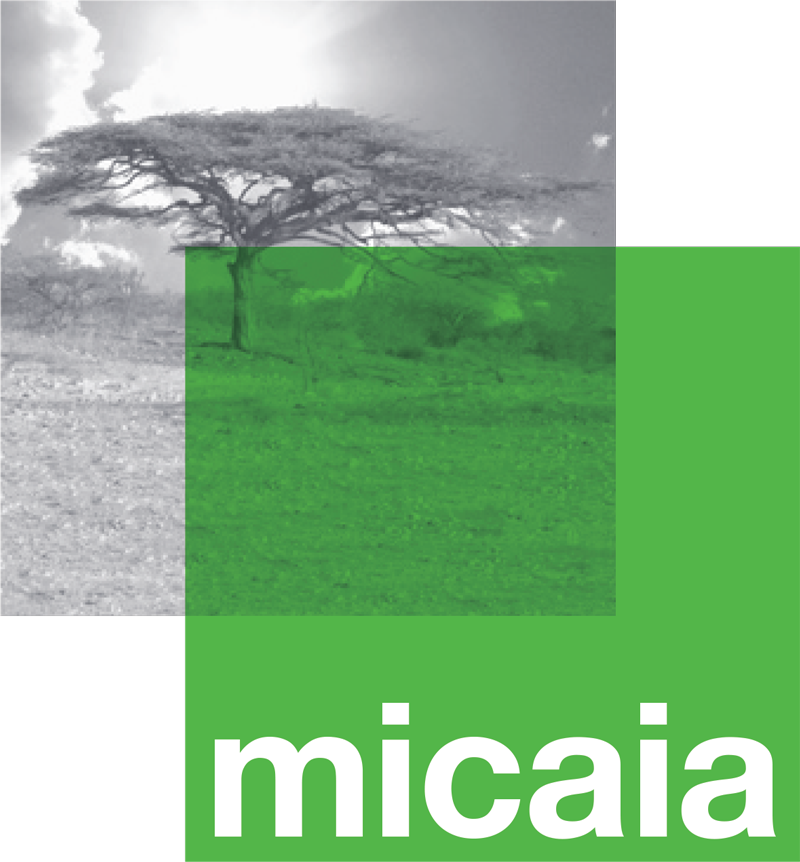A Landscape Approach
Lower Zambezi Valley (LZV)



Lower Zambezi Valley (LZV)
Current activities
Sustainable agriculture
The challenging environment for agriculture and relatively little extension service explains why the ‘slash and burn’ approach to farming is the norm. In recent years, the widespread and poorly regulated logging in the landscape has made it easier for families to expand into formerly densely wooded areas to open new fields. Micaia is introducing a range of agricultural practices that can loosely be called ‘sustainable agriculture’. The emphasis is on helping people produce more from the land they have rather than constantly opening new fields at the expense of the forest and all its resources. We know that most people have very little money, so the focus is on learning about approaches that do not need money – mulching, companion planting, use of natural pesticides and so on. We are building a network of ‘Lead Farmers’, men and women who have been trained and who can help others in their communities adopt new approaches.Storing water in sand
In the dry landscape of the Lower Zambezi Valley it is a struggle to find water. Many villages lack even one borehole, so people (usually women) are forced to dig wells in dry riverbeds to find water. It can take many hours to fill just a few buckets with water. One way to improve access to water is to store it in sand. Micaia Foundation is implementing a project supported by Excellent Development (UK) with technical support from the Africa Sand Dams Foundation (ASDF) of Kenya. The project is to build four sand dams in seasonal rivers, and to use the longer availability of water to stimulate horticulture to boost nutrition and for marketing. The concept is simple: construct a solid dam wall and wait for the rains to wash the sand down the river to fill the channel behind the wall. The water is absorbed into the sand – usually 2m-3m deep – and thus it does not evaporate as it normally would (very quickly) in these arid areas. When the rains are over, and the normal river is again dry, local people can dig into the sand behind the dam and access the stored water.Natural resource management
In Micaia’s previous phase of work in the landscape (2017-2020), there was a major focus on mapping and community land delimitation, and on helping communities develop natural resource management plans. Plans are no good if they exist only on paper, so part of our work now is to help communities find ways of implementing their natural resource management plan. Why is this important? Across the landscape, deforestation is happening at an astonishing rate, as logging companies take out valuable hardwoods (often far more than the company’s licensce allows) and no new planting is done. Families move into the open spaces and clear the remaining forest. As the forest diminishes, so too does the biodiversity of the area, including the rich stores of medicinal plants, native species of fruit trees and other non-timber forest products that could provide valuable livelihood opportunities. Sadly, but understandably, local leaders find it difficult to impose sanctions on people who burn or clear forest even in areas designated as ‘reserves’. Without alternative livelihoods, what choice do people have? That is why Micaia’s approach is holistic; we place the work on natural resource management planning in the context of economic livelihood opportunities.Diversifying local economies
Life is tough in this landscape and there are few opportunities for people to earn money. So, one of the top priorities for Micaia is help diversify the local economies of the landscape and open new and additional opportunities. We continue to work closely with BPM on consolidating all the gains made in recent years in the baobab value chain, including strengthening the capacity of the women Collectors Association to play its part in the company and benefit from its success. Baobab, however, is not the only NTFP with a market. The LZV landscape has thousands of marula trees (scientific name) and developing the marula value chain is a top priority in Micaia’s work. We also have commercial partners interested in the supply of various medicinal plants that are found in the landscape. In some areas, beekeeping has potential. In other areas we plan to expand the production of Bambara Nut and lead the development in Mozambique of the commercialization of this value chain.
Away from natural products, Micaia’s principal focus is on stimulating micro-enterprise especially in small urban centres – the larger villages to which some people are migrating, attracted by better services including water and electricity. Micaia will be offering training and mentoring programmes, particularly for younger people, to help them develop and test ideas for small businesses.
Capabilities and functional literacy and numeracy
Less than 5% of the (2,700) adult women engaged in the baobab value chain and BPM can write their own name. These women, and thousands more, live in a patriarchal and polygamous society where women are oppressed and given few opportunities to learn, to grow as people, or even to have their say. On the back of work on baobab, Micaia introduced its Capabilities approach, focusing initially at least on baobab collectors. The approach uses mostly visual images and a local facilitator, trained by Micaia, to facilitate discussion about a range of issues grouped loosely under two themes: ‘My Good Life’ and ‘My community’. Since 2018, thousands ofwomen have taken part in discussions on topics as diverse as domestic violence, family health, and climate change. With more knowledge and confidence, women are steadily gaining a stronger voice in their homes and communities – and with more money coming from their baobab sales, these women can be more independent too.
In our current programme, while continuing the capabilities work, Micaia is developing a new approach to enabling people to learn to read and write words and numbers that they need. In other words, we are driven not by a standard curriculum, but by context. In 2021, the focus is on developing materials by working with people in communities to explore what words and numbers they feel they need to know, and why: for instance, the weight of baobab fruit and money owed on a BPM voucher when the Collector delivers fruit.
